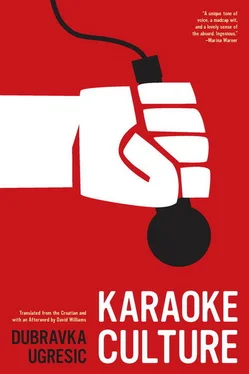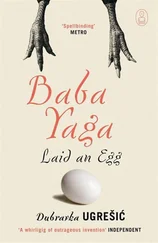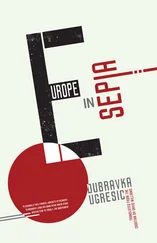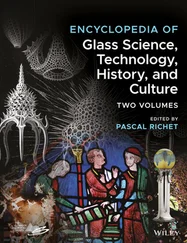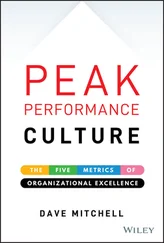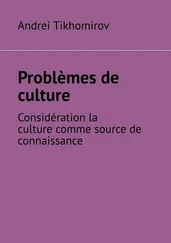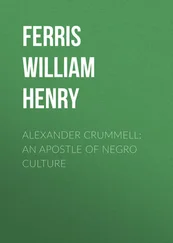Dubravka Ugresic - Karaoke Culture
Здесь есть возможность читать онлайн «Dubravka Ugresic - Karaoke Culture» весь текст электронной книги совершенно бесплатно (целиком полную версию без сокращений). В некоторых случаях можно слушать аудио, скачать через торрент в формате fb2 и присутствует краткое содержание. Год выпуска: 2011, Издательство: Open Letter, Жанр: Публицистика, на английском языке. Описание произведения, (предисловие) а так же отзывы посетителей доступны на портале библиотеки ЛибКат.
- Название:Karaoke Culture
- Автор:
- Издательство:Open Letter
- Жанр:
- Год:2011
- ISBN:нет данных
- Рейтинг книги:4 / 5. Голосов: 1
-
Избранное:Добавить в избранное
- Отзывы:
-
Ваша оценка:
- 80
- 1
- 2
- 3
- 4
- 5
Karaoke Culture: краткое содержание, описание и аннотация
Предлагаем к чтению аннотацию, описание, краткое содержание или предисловие (зависит от того, что написал сам автор книги «Karaoke Culture»). Если вы не нашли необходимую информацию о книге — напишите в комментариях, мы постараемся отыскать её.
Karaoke Culture — читать онлайн бесплатно полную книгу (весь текст) целиком
Ниже представлен текст книги, разбитый по страницам. Система сохранения места последней прочитанной страницы, позволяет с удобством читать онлайн бесплатно книгу «Karaoke Culture», без необходимости каждый раз заново искать на чём Вы остановились. Поставьте закладку, и сможете в любой момент перейти на страницу, на которой закончили чтение.
Интервал:
Закладка:
March 2009
[1]Colin Robinson, “Diary,” London Review of Books , February 26, 2009.
THE SPIRIT OF THE KAKANIAN PROVINCE
An Inner Map
Provincial train stations with their apricot-hued façades and window boxes of pelargonia (take a train from Zagreb to Budapest!), architecture (hospitals, bureaucratic buildings, schools, theaters), cuisine (sacher torte, cabbage and noodles, Kaiserschmarrn, Tafelspitz , dumplings, and poppy-seed noodles), city parks, and the Czech last names sprinkled through the Viennese telephone directory (like poppy seeds on a kaiser roll) — these are not the only ways to recognize a Kakanian landscape.
I am no expert on the Austro-Hungarian monarchy, I hardly even rank as an amateur, but I have a sense that the monarchy stamped a watermark on the souls of its subjects, an internal landscape, the coordinates of periphery and center. The center became aware of itself thanks to the periphery, the periphery grew to know itself thanks to the center. One went from the provinces to Vienna for the opera, to Budapest to buy the latest hats. After all wasn’t it a child of the periphery, a postman’s son from Sarajevo, who shot Kakania in the head, and afterwards things in Europe were never the same?
The Croatian Kakanian Novel
Croatia lay on the outskirts of Austro-Hungary. I don’t know much about the times, but I do recall a few odds and ends from the history of Croatian letters. I remember, for instance, that the protagonists of Croatian novels at the turn of the last century studied in Vienna, Prague, or Budapest, and that aside from Croatian, they used German, Hungarian, or Czech. The detail that a person went off to Vienna to study caught my youthful fancy; it seemed so noble, though it is also true that the characters in these novels could barely make ends meet. And if these protagonists were writers, as some were, their poems were occasionally published in Prague, Budapest, or Viennese publications, to the envy of their milieu. That, too, had a noble ring. The Kakanian metropoli have long since lost their attraction and pizzazz. The center moved elsewhere. I’m guessing that today’s writers in Prague, Budapest and Vienna envy the rare compatriot whose name appears as a contributor in the New Yorker .
While I was leafing through a few Croatian Kakanian novels (which I’d last cracked in high school), I felt I was working not with literary texts but genes. It was like discovering something we have always known but failed to attend to, like discovering a birthmark exactly where it was on our parents, children, grandchildren. At the same time, the literary critic in me grumbled while reading the ongoing episodes of these provincial literary soap operas, which have been going on for a century. Ah, picking up old books again is so often a disappointment.
I will say something about these novels in thumbnail sketches, as befits them, like the episodes of TV soap operas, or teletext. All the examples come from the Croatian literary canon and are required reading in high school. At their center there is invariably a male protagonist, and his life’s destiny is told in first or third person. The structure of the novel follows a type, like the window-box pelargonia of Austro-Hungarian railway stations. These literary heroes are distant relatives of Werther and Childe Harold, cousins to the Russian literary heroes, those who would be dubbed “superfluous” by literary critics after Turgenev’s The Diary of a Superfluous Man . The type — the high-strung, over-sensitive, educated misfit or outcast — such as Griboyedov’s Chatsky, Pushkin’s Eugene Onegin, Lermontov’s Pechorin, Turgenev’s heroes (Rudin, Lavrecki, the Kirsanovs, and Bazarov), Goncharov’s Oblomov and others — proliferated throughout the Slavic literatures and is exclusively the characteristic of the male literary lineage. The women in these novels belong to one of three varieties: a) the young, beautiful, noble, and patriotic girl, who is abandoned, as a rule, by the hero; b) the femme fatale (often foreign), who toys with the hero; c) the unloved, quiet “sufferer,” who follows the hero faithfully to the end of her days.
The First Suicide
The novel Janko Borislavić by Ksaver andor Gjalski was published in 1887 (we are already twenty years into Austro-Hungary at this point). The novel is a belated romantic work on “Faustian problems of the spirit,” as Croatian literary criticism of the day deemed it. Janko Borislavić is a Croatian landowner who, while studying abroad, is torn by doubts as to his course of study, theology, and returns to his estate in the Croatian Zagorje region. Here he falls in love with charming Dorica, though love, thinks Borislavić, is “fickle,” turning a “chaste, holy virgin” into nothing more than a “simple organ for prolonging the species.” Possessed by the “intellectualistic” restlessness of the period, steeped in Schopenhauer’s philosophy, and, of course, a fear of women, Borislavić in his long internal monologues polemicizes passionately with the books he has read. He leaves Dorica and ventures into the world, where he spends six years, sinking into greater and greater disappointment. Human “stupidity” is “eternal and absolute” and everywhere.
“Ha, ha, for that you, my Diderot, Rousseau and you other unfortunates who were so gifted with human spirit, for this you wrote those volumes of wisdom! In vain your efforts, futile all that work. Ah, so stupid, stupid is the world.”
“Compelled by his Faustian nature, his inner fire, to track down the thousands of threads that compose the mysterious source of life,” Borislavić travels. He leaves Paris, disappointed (“Eighty years ago you shed so much blood, alas, my Frenchmen!”); he stops briefly in England, where he cannot bear the “stuffiness of human society which lies in wait implacably to thwart all progress and then it serves up peace for the human spirit.” From England he goes to America, but there he is put off by the “amalgam of inherited prejudices, the frenzy and struggle of individual wills and desires.” Upon his return from America he disembarks in Germany, like “vast barracks of philistine phalanges.” Borislavić returns to his native Zagorje, but here, as well, “human malice and stupidity revel in orgy.” Again he sets out on his journey, again he returns, he has a “nervous breakdown,” slits his wrists, and dies.
A Second Death
A somewhat later novel by Ksaver andor Gjalski, Radmilović (1894), has a similar plot. Here the hero, Marko Radmilović, is not destroyed by “world anguish” but by the environment of Zagreb, the place Radmilović comes to from the Croatian provinces. Radmilović publishes his poems and short stories in Czech, Polish, Russian, and other Slavic languages, they have even heard of him in Paris, but in Zagreb he is unknown and unrecognized.
“It is sad, so sad that such a writer is unknown!. . Had he been born in France, Russia or Germany, believe me, the whole world would have known of him. But he is only a Croatian writer, he works on the threshold to the Orient, at the fringes of Europe. . This could easily happen here with someone like Bourget, or another more vaunted celebrity. There is no such European or world fame which could so easily surmount our high wall, the wall of pervasive non-reading.”
Radmilović is insulted by the “cannabilistic persecutions” of his colleagues, an environment which holds that the literary calling is not worthy of respect and where there is no educated readership.
“—So, I tell you, were all our literary institutions to collapse, were all our writers to breathe their last, the gentlemen here would not fall silent for so much as a instant, or even notice that something was amiss! But were the German Leipzig Press to stop coming out, heaven forbid, with its Familienblatters, its Buch fur Alle , or its pound-a-novel publications such as Sibiriens Holle, these men would be despondent. . How many lovely Croatian women know the names of a Gundulić, a Mažuranić, a Preradović, how many of them would blush if you were to catch them unaware of Osman or Čengić?. . Ah — yet heaven forbid that you come across a single one who knows nothing of the German Elise Polko or Marlitt! — for this we struggle, day and night, for this we sacrifice peace of mind and a sure existence, health, everything! Oh, Lord, where do we find the will to keep working? — This work brings us no sustenance, gives us no moral or ethical reward, no fame, no benefit to the people. Why keep working at all?”
Читать дальшеИнтервал:
Закладка:
Похожие книги на «Karaoke Culture»
Представляем Вашему вниманию похожие книги на «Karaoke Culture» списком для выбора. Мы отобрали схожую по названию и смыслу литературу в надежде предоставить читателям больше вариантов отыскать новые, интересные, ещё непрочитанные произведения.
Обсуждение, отзывы о книге «Karaoke Culture» и просто собственные мнения читателей. Оставьте ваши комментарии, напишите, что Вы думаете о произведении, его смысле или главных героях. Укажите что конкретно понравилось, а что нет, и почему Вы так считаете.
